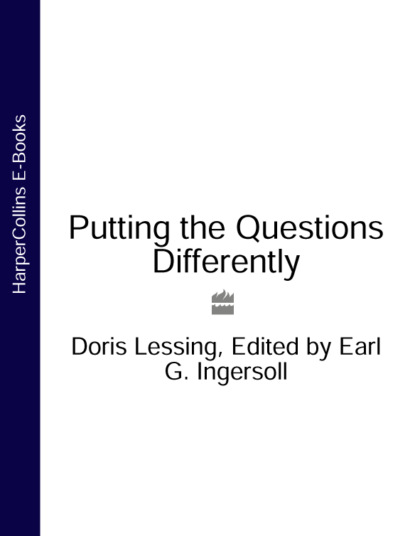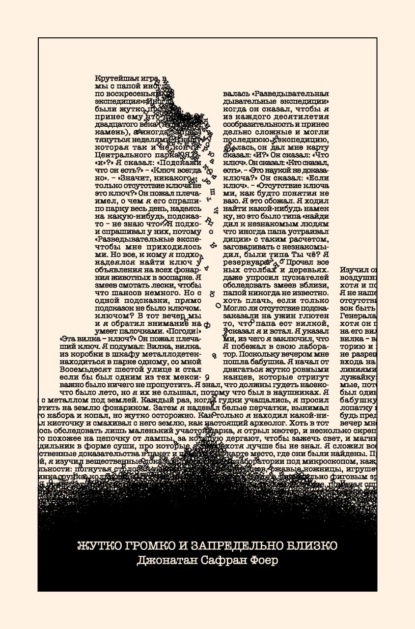
Текст
отзывы: 0 | рейтинг: 0
Полная версия
Полная версия
Landlocked
Doris Lessing
The fourth book in the Nobel Prize for Literature winner’s ‘Children of Violence’ series tracing the life of Martha Quest from her childhood in colonial Africa to old age in post-nuclear Britain.In the aftermath of the Second World War, Martha Quest finds herself completely disillusioned. She is losing faith with the communist movement in Africa, and her marriage to one of the movement's leaders is disintegrating. Determined to resist the erosion of her personality, she engages in a love affair and breaks free, if only momentarily, from her suffocating unhappiness.
DORIS LESSING
Landlocked
Book Four of the
‘Children of Violence’ series
Contents
Cover (#u9e76db89-1cf2-5297-9c42-20c7ae407176)
Title Page (#ub6c4af82-7291-5a53-a175-ffdb323b329c)
Part One (#u9684c343-444c-578d-973a-2e172f871855)
Chapter One (#u588da70d-969f-5dfd-972d-560569007b9a)
Chapter Two (#u31353cad-87f0-59a1-b3ca-2ba49d94f239)
Chapter Three (#u8f135195-f0b3-5367-a0f8-c2f828c62852)
Chapter Four (#u2bd240dc-28e7-59d6-b925-640ca899eabe)
Part Two (#ub5a6ffef-fe27-5898-9040-7e22881fd0b9)
Chapter One (#u97cda29a-a7b7-5ee4-8f5f-db0385a110d5)
Chapter Two (#ub053b464-069c-54cc-aec5-0937321eab97)
Chapter Three (#litres_trial_promo)
Chapter Four (#litres_trial_promo)
Part Three (#litres_trial_promo)
Chapter One (#litres_trial_promo)
Chapter Two (#litres_trial_promo)
Chapter Three (#litres_trial_promo)
Chapter Four (#litres_trial_promo)
Part Four (#litres_trial_promo)
Chapter One (#litres_trial_promo)
Chapter Two (#litres_trial_promo)
Chapter Three (#litres_trial_promo)
Chapter Four (#litres_trial_promo)
About the Author (#litres_trial_promo)
By the Same Author (#litres_trial_promo)
Read On (#litres_trial_promo)
The Grass is Singing (#litres_trial_promo)
The Golden Notebook (#litres_trial_promo)
The Good Terrorist (#litres_trial_promo)
Love, Again (#litres_trial_promo)
The Fifth Child (#litres_trial_promo)
Copyright (#litres_trial_promo)
About the Publisher (#litres_trial_promo)
Part One (#ulink_7f31b98d-73f6-5157-94fe-8bff3b014509)
The Mulla walked into a shop one day. The owner came forward to serve him.
‘First things fìrst,’ said Nasrudin; ‘did you see me walk into your shop?’
‘Of course.’
‘Have you ever seen me before?’
‘Never in my life.’
‘Then how do you know it is me?’
THE SUFIS; Idries Shah
Chapter One (#ulink_3d2dbf51-2e0a-5e96-9ef0-1633bb5ba5b9)
The afternoon sun was hot on Martha’s back, but not steadily so: she had become conscious of a pattern varying in impact some minutes ago, at the start of a telephone conversation that seemed as if it might very well go on for hours yet. Mrs Buss, the departing senior secretary, had telephoned for the fourth time that day to remind Martha, her probable successor, of things that must be done by any secretary of Mr Robinson, for the comfort and greater efficiency of Mr Robinson. Or rather, that is what she said, and possibly even thought, the telephone calls were for. In fact they expressed her doubt (quite justified, Martha thought) that Martha was equipped to be anybody’s secretary, and particularly Mr Robinson’s – who had been spoiled (as Martha saw it), looked after properly (as Mrs Buss saw it), for five years of Mrs Buss’s life.
Mrs Buss said: ‘And don’t forget the invoice on Fridays,’ and so on; while Martha, fully prepared to be conscientious within the limits she had set for herself, made notes of her duties on one, two, three, four sheets of foolscap. Meanwhile she studied the burning or warm or glowing sensation on her back. The window was two yards behind her, and it had a greenish ‘folkweave’ curtain whose edge, or rather, the shadow of whose edge, chanced to strike Martha’s shoulder and her hip. At first had chanced – Martha was now carefully maintaining an exact position. Areas of flesh glowed with chill, or tingled with it: behind heat, behind cold, was an interior glow, as if they were the same. Heat burned through the glass on to blade and buttock; the cool of the shadow burned too. But there was not only contrast between hot heat and hot chill (cold cold and cold heat?); there were subsidiary minor lines, felt as strokes of tepid sensation, where the shadow of the window frame cut diagonally. And, since the patches and angles of sunlight fell into the office for half of its depth, and had been so falling for three hours, everything was warmed – floors, desks, filing cabinets flung off heat; and Martha stood, not only directly branded by sunlight and by shadow, her flesh stinging precisely in patterns, but warmed through by a general irradiation. Which, however, was getting too much of a good thing. ‘Actually,’ she said to Mrs Buss, ‘I ought to be thinking of locking up.’ This was a mistake; it sounded like over-eagerness to be done with work, and earned an immediate extension of the lecture she was getting. She ought to have said: ‘I think Mr Robinson wants to make a call.’
At this moment Mr Robinson did in fact put his head out of his office and frown at Martha who was still on the telephone. He instantly vanished, leaving a sense of reproach. Martha just had time to offer him the beginnings of a placatory smile of which she was ashamed. She was not going to be Mr Robinson’s secretary, and she ought to have told him so before this.
She should have made up her mind finally weeks ago, and, having made up her mind, told him. She had not, because of her tendency – getting worse – to let things slide, to let things happen. It had needed only this: that she should walk into Mr Robinson’s office and say, pleasantly, absentmindedly almost, ‘I’m sorry, Mr Robinson, I’ve decided it would be better if I weren’t your secretary.’ At which he would nod, say: ‘Of course, Mrs Hesse, think no more about it.’
This unreal conversation was why Martha had not in fact gone in before now to make her stand on a refusal; and why she had spent so much of her time in the last week or so marvelling at the complexities behind such a simple act.
Mrs Buss’s husband had decided to take a job on the Copper Belt. Mrs Buss did not want to leave this job which fitted her soul like a glove, but being nothing if not an expert on what was right, knew it was right to follow her husband wheresoever he would go. Although she was not married to her husband but to her work, or rather, to her boss – for the past five years, Mr Robinson. This did not mean, far from it, that her relation with Mr Robinson was anything it should not be; her duty was to the idea of what was right from a secretary. In the Copper Belt, she would, after an agitated fortnight or so of writing letters to Martha telling her how to look after Mr Robinson, transfer herself to her new boss, whoever he was, and around him henceforward her life, her time, her being, would revolve.
As for Mr Robinson, he understood not the first thing about this phenomenon over which Martha pondered still, after years of working beside it.
What would he say, for instance, if Martha told him: Mr Robinson, did you know that Mrs Buss tells Mr Buss, on the nights when her shorthand book is full: ‘You know I can’t tonight, I’ve got two memorandums and a company agreement to type tomorrow morning.’ And Mr Buss understood his position in her life so well, that he knew (as Mrs Buss said, with a nod of satisfaction) where he got off. What would Mr Robinson say if told that Mrs Buss went to bed early refusing sundowners, the pictures, a dance, anything at all, on the nights before – an audit, a big court case where Mr Robinson would have to appear, or even a particularly heavy mail?
Well, Martha could not conceive of telling him, he simply would not believe it. He would go crimson, she knew that; the lean ‘likeable’ lawyer’s face would grow sulky while the blood darkened it. Because, of course, he would not understand how impersonal this passion was, and that, from two weeks’ time, in Lusaka, Mr Buss would be ‘told where he got off’ just as strongly but in relation to another job, another boss.
The door flung open again, and again Mr Robinson appeared, this time showing annoyance. Martha covered the mouthpiece, saying, ‘It’s Mrs Buss,’ relieved that Mrs Buss was definitely ‘office work’.
‘Does she want to speak to me?’
‘Do you want to speak to Mr Robinson?’
Doris Lessing
The fourth book in the Nobel Prize for Literature winner’s ‘Children of Violence’ series tracing the life of Martha Quest from her childhood in colonial Africa to old age in post-nuclear Britain.In the aftermath of the Second World War, Martha Quest finds herself completely disillusioned. She is losing faith with the communist movement in Africa, and her marriage to one of the movement's leaders is disintegrating. Determined to resist the erosion of her personality, she engages in a love affair and breaks free, if only momentarily, from her suffocating unhappiness.
DORIS LESSING
Landlocked
Book Four of the
‘Children of Violence’ series
Contents
Cover (#u9e76db89-1cf2-5297-9c42-20c7ae407176)
Title Page (#ub6c4af82-7291-5a53-a175-ffdb323b329c)
Part One (#u9684c343-444c-578d-973a-2e172f871855)
Chapter One (#u588da70d-969f-5dfd-972d-560569007b9a)
Chapter Two (#u31353cad-87f0-59a1-b3ca-2ba49d94f239)
Chapter Three (#u8f135195-f0b3-5367-a0f8-c2f828c62852)
Chapter Four (#u2bd240dc-28e7-59d6-b925-640ca899eabe)
Part Two (#ub5a6ffef-fe27-5898-9040-7e22881fd0b9)
Chapter One (#u97cda29a-a7b7-5ee4-8f5f-db0385a110d5)
Chapter Two (#ub053b464-069c-54cc-aec5-0937321eab97)
Chapter Three (#litres_trial_promo)
Chapter Four (#litres_trial_promo)
Part Three (#litres_trial_promo)
Chapter One (#litres_trial_promo)
Chapter Two (#litres_trial_promo)
Chapter Three (#litres_trial_promo)
Chapter Four (#litres_trial_promo)
Part Four (#litres_trial_promo)
Chapter One (#litres_trial_promo)
Chapter Two (#litres_trial_promo)
Chapter Three (#litres_trial_promo)
Chapter Four (#litres_trial_promo)
About the Author (#litres_trial_promo)
By the Same Author (#litres_trial_promo)
Read On (#litres_trial_promo)
The Grass is Singing (#litres_trial_promo)
The Golden Notebook (#litres_trial_promo)
The Good Terrorist (#litres_trial_promo)
Love, Again (#litres_trial_promo)
The Fifth Child (#litres_trial_promo)
Copyright (#litres_trial_promo)
About the Publisher (#litres_trial_promo)
Part One (#ulink_7f31b98d-73f6-5157-94fe-8bff3b014509)
The Mulla walked into a shop one day. The owner came forward to serve him.
‘First things fìrst,’ said Nasrudin; ‘did you see me walk into your shop?’
‘Of course.’
‘Have you ever seen me before?’
‘Never in my life.’
‘Then how do you know it is me?’
THE SUFIS; Idries Shah
Chapter One (#ulink_3d2dbf51-2e0a-5e96-9ef0-1633bb5ba5b9)
The afternoon sun was hot on Martha’s back, but not steadily so: she had become conscious of a pattern varying in impact some minutes ago, at the start of a telephone conversation that seemed as if it might very well go on for hours yet. Mrs Buss, the departing senior secretary, had telephoned for the fourth time that day to remind Martha, her probable successor, of things that must be done by any secretary of Mr Robinson, for the comfort and greater efficiency of Mr Robinson. Or rather, that is what she said, and possibly even thought, the telephone calls were for. In fact they expressed her doubt (quite justified, Martha thought) that Martha was equipped to be anybody’s secretary, and particularly Mr Robinson’s – who had been spoiled (as Martha saw it), looked after properly (as Mrs Buss saw it), for five years of Mrs Buss’s life.
Mrs Buss said: ‘And don’t forget the invoice on Fridays,’ and so on; while Martha, fully prepared to be conscientious within the limits she had set for herself, made notes of her duties on one, two, three, four sheets of foolscap. Meanwhile she studied the burning or warm or glowing sensation on her back. The window was two yards behind her, and it had a greenish ‘folkweave’ curtain whose edge, or rather, the shadow of whose edge, chanced to strike Martha’s shoulder and her hip. At first had chanced – Martha was now carefully maintaining an exact position. Areas of flesh glowed with chill, or tingled with it: behind heat, behind cold, was an interior glow, as if they were the same. Heat burned through the glass on to blade and buttock; the cool of the shadow burned too. But there was not only contrast between hot heat and hot chill (cold cold and cold heat?); there were subsidiary minor lines, felt as strokes of tepid sensation, where the shadow of the window frame cut diagonally. And, since the patches and angles of sunlight fell into the office for half of its depth, and had been so falling for three hours, everything was warmed – floors, desks, filing cabinets flung off heat; and Martha stood, not only directly branded by sunlight and by shadow, her flesh stinging precisely in patterns, but warmed through by a general irradiation. Which, however, was getting too much of a good thing. ‘Actually,’ she said to Mrs Buss, ‘I ought to be thinking of locking up.’ This was a mistake; it sounded like over-eagerness to be done with work, and earned an immediate extension of the lecture she was getting. She ought to have said: ‘I think Mr Robinson wants to make a call.’
At this moment Mr Robinson did in fact put his head out of his office and frown at Martha who was still on the telephone. He instantly vanished, leaving a sense of reproach. Martha just had time to offer him the beginnings of a placatory smile of which she was ashamed. She was not going to be Mr Robinson’s secretary, and she ought to have told him so before this.
She should have made up her mind finally weeks ago, and, having made up her mind, told him. She had not, because of her tendency – getting worse – to let things slide, to let things happen. It had needed only this: that she should walk into Mr Robinson’s office and say, pleasantly, absentmindedly almost, ‘I’m sorry, Mr Robinson, I’ve decided it would be better if I weren’t your secretary.’ At which he would nod, say: ‘Of course, Mrs Hesse, think no more about it.’
This unreal conversation was why Martha had not in fact gone in before now to make her stand on a refusal; and why she had spent so much of her time in the last week or so marvelling at the complexities behind such a simple act.
Mrs Buss’s husband had decided to take a job on the Copper Belt. Mrs Buss did not want to leave this job which fitted her soul like a glove, but being nothing if not an expert on what was right, knew it was right to follow her husband wheresoever he would go. Although she was not married to her husband but to her work, or rather, to her boss – for the past five years, Mr Robinson. This did not mean, far from it, that her relation with Mr Robinson was anything it should not be; her duty was to the idea of what was right from a secretary. In the Copper Belt, she would, after an agitated fortnight or so of writing letters to Martha telling her how to look after Mr Robinson, transfer herself to her new boss, whoever he was, and around him henceforward her life, her time, her being, would revolve.
As for Mr Robinson, he understood not the first thing about this phenomenon over which Martha pondered still, after years of working beside it.
What would he say, for instance, if Martha told him: Mr Robinson, did you know that Mrs Buss tells Mr Buss, on the nights when her shorthand book is full: ‘You know I can’t tonight, I’ve got two memorandums and a company agreement to type tomorrow morning.’ And Mr Buss understood his position in her life so well, that he knew (as Mrs Buss said, with a nod of satisfaction) where he got off. What would Mr Robinson say if told that Mrs Buss went to bed early refusing sundowners, the pictures, a dance, anything at all, on the nights before – an audit, a big court case where Mr Robinson would have to appear, or even a particularly heavy mail?
Well, Martha could not conceive of telling him, he simply would not believe it. He would go crimson, she knew that; the lean ‘likeable’ lawyer’s face would grow sulky while the blood darkened it. Because, of course, he would not understand how impersonal this passion was, and that, from two weeks’ time, in Lusaka, Mr Buss would be ‘told where he got off’ just as strongly but in relation to another job, another boss.
The door flung open again, and again Mr Robinson appeared, this time showing annoyance. Martha covered the mouthpiece, saying, ‘It’s Mrs Buss,’ relieved that Mrs Buss was definitely ‘office work’.
‘Does she want to speak to me?’
‘Do you want to speak to Mr Robinson?’
Другие книги автора:
Популярные книги
























